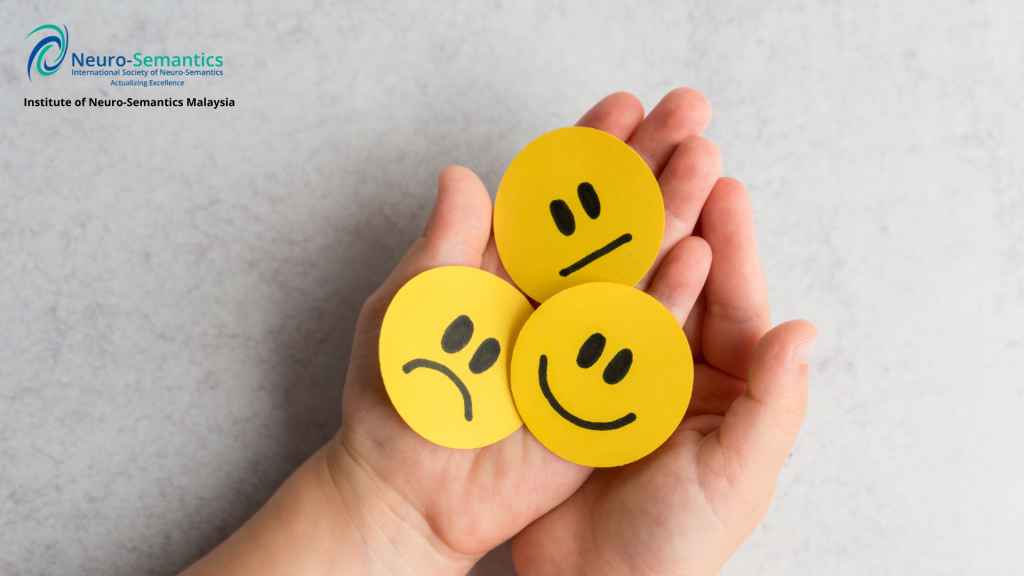
Exploring how our smarts and feelings connect, we’re at a place where regular brainpower meets the world of emotions. If Intelligence Quotient (I.Q.) measures our overall smarts like thinking, figuring things out, and being creative, what happens when we mix in our emotions? That mix gives us something called emotional intelligence.
Peter Salovey and John Mayer did a lot of smart work to help us understand emotional intelligence. They say it’s about not just knowing our own feelings but also understanding other people’s emotions. This skill means telling apart different emotions, putting the right names to them, and using what we feel to make good choices.
They break down emotional intelligence into four basic things: noticing emotions, using them, understanding them, and handling them well. Many definitions agree that emotional intelligence is about knowing, using, and controlling our emotions. It’s not just a personal skill – it affects how we get along with others, do our jobs, and succeed in school.
The term “emotional intelligence” first popped up in 1964, but it became popular after Daniel Goleman wrote a famous book about it in 1995. Goleman’s book helped us see how important emotions are in how smart we are. People then started talking about Emotional Quotient (EQ) and ways to measure and understand emotional intelligence. Keith Beasley used the term “emotional quotient” in 1987, and even earlier, in the 1950s, Abraham Maslow talked about emotional strength.
In 1983, Howard Gardner wrote a special book that changed how we think about being smart. He said there’s not just one kind of smart – there are many! He introduced the idea of multiple intelligences, including how we understand others (interpersonal intelligence) and how well we know ourselves (intra-personal intelligence). Gardner’s idea helped us see that emotions are a big part of being smart in different ways.
Going back to Daniel Goleman, he broke down emotional intelligence into five main parts:
- Self-awareness: This refers to the ability to know your emotions, strengths, weaknesses, drives, values, and goals and recognize their impact on others while using certain inner feelings to guide decisions Awareness and understanding of emotions involves comprehending emotion language and appreciating relationships between emotions. This may involve being sensitive to slight variations between emotions. It may involve recognizing and describing how emotions evolve over time.
- Self-regulation: This refers to controlling or redirecting disruptive emotions and impulses as well as adapting to changing circumstances. By regulating your emotions, you can then use them to facilitate such cognitive activities as thinking and problem-solving. The emotionally intelligent person can capitalize fully upon his or her changing moods in order to best fit the task at hand. In regulating emotions, you develop the ability to them turn up or down, to amplify or dampen them.
- Social skill: This refers to using your emotions as you manage your relationships for getting along with others. By regulating your emotions, you can more effectively relate to others and to their emotions. The emotionally intelligent person can harness emotions, even negative ones, and manage them to achieve intended goals.
- Empathy: This refers to considering other people’s feelings especially when connecting to people, when making decisions, when seeking to understand another person, etc.
- Motivation: This refers to using your emotions to value, to identify what’s important, to feel moved, to feel motivated, etc.
Conclusion
In essence, emotional intelligence is about understanding and managing our feelings in a smart way. It means not just letting emotions control us but being in charge of them. Knowing what causes our emotions helps us handle them wisely, giving us a feeling of control.
Emotional intelligence is crucial for our health, happiness, and good relationships. It goes beyond just our personal feelings, affecting how we connect with others, succeed at work, and do well in school. When we embrace emotional intelligence, we start a journey that changes how we think about being smart. It shows us that emotions play a big role in how we understand and relate to the world around us.
Curated by Danielle Tan.
Reference:
- [Neurons] 2024 Neurons #2 WHAT IS EMOTIONAL INTELLIGENCE? by L. Michael Hall, Ph.D. Executive Director, ISNS.